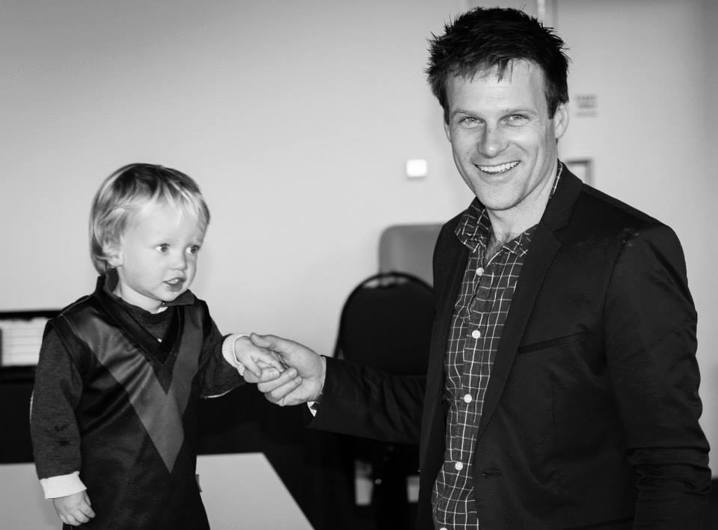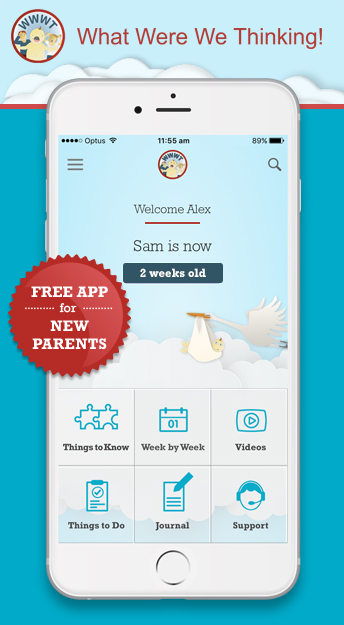When your baby swaps "mamma" for "dadda, dadda!"
By Danielle

Around the same time my son William began saying “Mumma” we welcomed his baby brother Patrick into our family. William was 15 months old when he became a big brother. Will and I have spent a glorious 15 months together. Two peas in a pod and totally in sync. I realised before going into hospital that I had never left William for more than about three of his waking hours.
My husband Ed plays a traditional father/ husband role in our family. He works full time and supports me as much as possible with all the ‘home duties’ when he is home. A wonderful support I might add but before Patrick’s arrival he could travel with work for a week and there wouldn’t be a drama at home.
Hello second child, hello hands on Dad! Ed now gets up with William in the mornings to allow me to feed or rest after wakeful nights of feeding and settling. He is also picking up much of the slack in the evenings when he gets home. The reality is, there is loads more to do. We have two very dependent children with completely different needs. With two small children, I simply couldn’t manage without Ed.
William has also just reached a lovely age where he can suddenly do many more things. Throw a ball, communicate his thoughts, enjoy books, walk, run and play. This new stage brings many more opportunities for Ed to connect with William. William is clearly loving fun time spent with Dad each day, hence the call out each morning. I can cope with that!
Expert response from What Were We Thinking! expert, Ann O'Doherty
Thanks for your post and the strong message of parents working successfully together to meet the needs of a growing family.
The strong relationship you have developed with William allows him to feel secure and confident and will have made it easier for him to transition to increased care from and play with Ed after the birth of Patrick and to the development of a stronger relationship with Ed.
Children learn so much about their world and how to act and speak and relate to others from the close relationships they have. Children learn from watching how you act, react, speak, play and respond and with you and Ed providing a positive model of a respectful cooperative relationship William and Patrick will learn about healthy relationships, knowledge that they will take with them into adulthood and knowledge that will help them form secure healthy relationships of their own.
When you and Ed play with William and Patrick you are letting them know how important they are to you, helping them develop knowledge about who they are and where they fit in to your world.
William’s increasing skill base for play and communication increases the fun to be had through play, play creates special moments and joy and these special moments also help to make the inevitable challenges of parenting a little easier.
Strong positive relationships help children feel safe, secure and loved and this in turn helps them to feel supported and confident, to explore, investigate and experience new things all of which increase the joy in life and stimulate brain and physical development.
The Australian Parenting Website Raising Children say “A loving relationship with you (as parents) is the most important part of your child’s environment. Tuning in and responding to your child with warmth and gentleness lays the foundation for your child’s development and helps to shape the adult your child will become”.
Well done to you both!
Posted in: A new reality Baby 21-26 weeks Growth and development In this together








